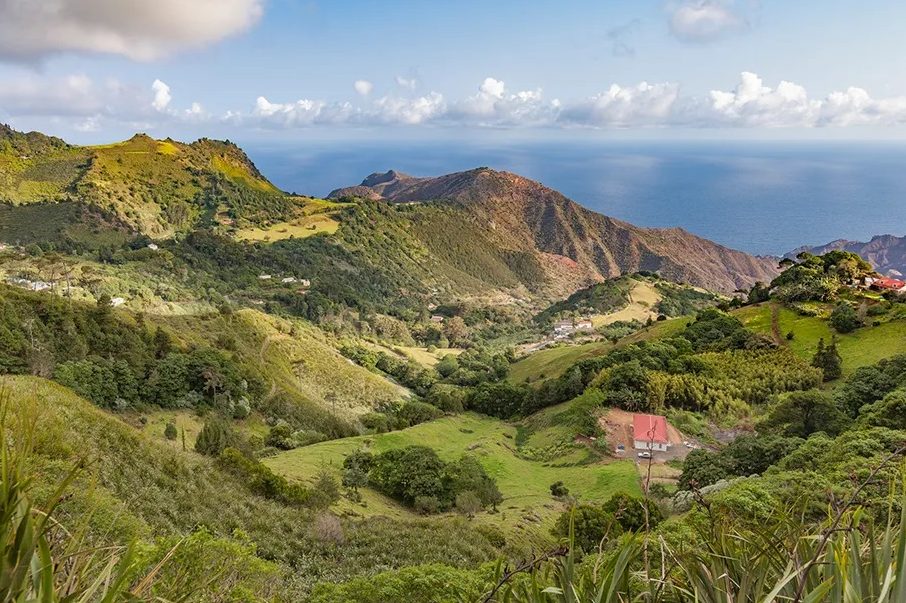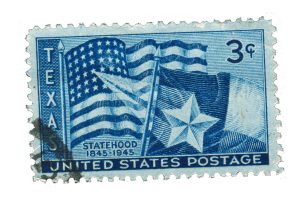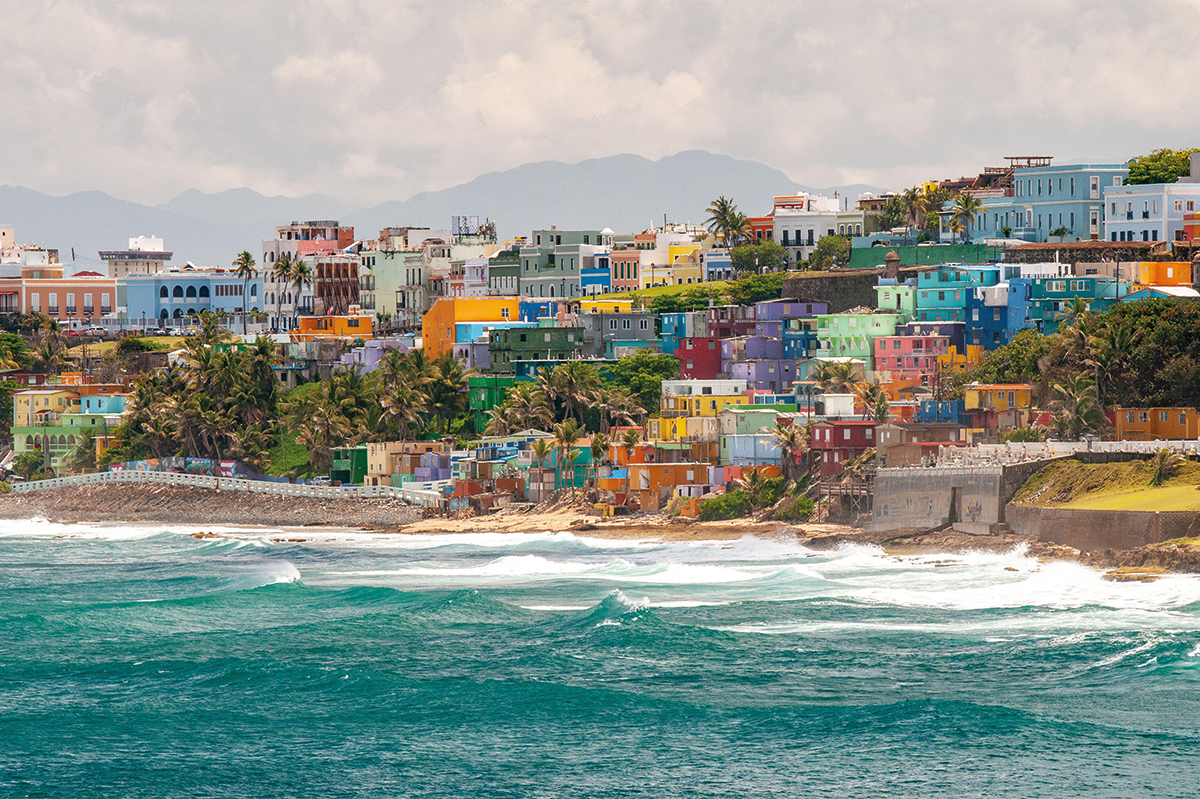In an attempt to escape from the world, I have come with friends to St. Helena. It is quite a good place for the exercise. Until a few years ago the only way to get to the island was a five-day boat voyage from Cape Town. Shortly before Covid, an airport for this British overseas territory was finally completed at UK taxpayer expense. To protect some local insects the runway was put at a slightly wrong angle, making it difficult — sometimes impossible — to land. The weekly flight from Johannesburg therefore refuels in Namibia in case landing is impossible and the plane has to about-turn.
A lifesize statue of Napoleon stands on the balcony. It takes a few days to get used to him
Jamestown is not the busiest metropolis, but for the island’s population of around 4,000 people this harbor town is the hub. The Consulate Hotel on the main street running down to the sea is run by the lovely Hazel and is a warren of rooms and memorabilia relating to the island. A lifesize statue of Napoleon Bonaparte stands on the balcony overlooking the street. It takes a few days to get used to him being over your shoulder as you take a morning coffee or the first drink of the day.
Exploring the hotel, I found a grand piano and put my fingers to work. While playable, it was slightly out of tune. I enquired whether this could be fixed and it was explained that the island’s piano tuner is in jail.
Down by the harbor that evening, I got chatting to a local friend who — like all the other islanders — attended the only school, which is named after Prince Andrew. I asked her whether it would be possible to spring the piano tuner from the local chokey even for a few hours. She told me that St. Helena’s prison is at capacity. Even on holiday this is the sort of thing that interests me. I learned that there is one murderer on the island, happily now free, but that most of the inmates were there for the sort of sex offenses that regrettably happen in small, remote communities where people are related.
As we were having this conversation, I became aware of a local drunk looking at us. I occasionally darted a look to check he wasn’t overhearing. He was, and sloped towards our table. “I ain’t no pedophile,” he said. “I don’t believe I said you were,” I replied. “I ain’t sold no children,” he went on. “You was looking at me whole time you have that talk.” Slipping into the fascinating local patois, my friend managed to talk him down. We avoided further crowding the prison and parted with a reassurance from me that I agreed he had never sold his daughters.
Of course the most famous prisoner to have been on this island was Napoleon. One night we had a glorious dinner at his island abode — Longwood House — which has been magnificently restored. The view from Napoleon’s quarters is one of the best on the island, which is saying something. It is like a mini world out there, with vast mountain crops, lush greenery and of course thousands of miles of empty ocean.
People are no longer brought up to believe in the Great Man view of history, but you cannot doubt it here. There is a startling aura about the place. The idea that this man required battalions of British troops to be stationed on the island, forts on every hilltop and a fleet of British ships surrounding it, just to keep him confined is testament to the fact that whatever else he got wrong, he was a great man. One of my friends caught me alone in Napoleon’s coffee parlor, staring out across the South Atlantic. “What are you thinking about?” he asked.
“Europe. Moscow,” I told him.
I have been unfair to the local inhabitants. Most of the “Saints” (as they are known) are superlatively lovely people. During the Sunday morning service, the “sign of the peace” bit involved meeting the whole congregation. They are also a genuinely diverse people with a DNA pool which is as mixed as any on Earth. And they are proud of their British status, without any of the concomitant guilts forced on us at home. During the long and ruminous construction of the airport, the bones of several hundred former slaves were uncovered. They turned out to be the bones of slaves freed by the British from Portuguese ships. St. Helena was a crucial port for the West Africa Squadron, tasked with stamping out the slave trade across the High Seas. One local piece of development is the rebuilding of Toby’s cottage. This is the former residence of a slave who became friends with Napoleon and to whom Napoleon gave a sum of money to be free.
Today, neither credit cards nor debit cards work on the island, phones barely do, and the wifi is patchy. To get money you have to go to the only branch of the island’s bank, show plenty of ID and sign many forms. With my $60 (plus commission) I can stand drinks for several nights. This is the sort of solitude I seek. I catch up on a pile of books, swim in the harbor and say hello to people I haven’t seen for hours.
The most striking thing about the island is not just its lushness but its extraordinary biodiversity. There are about five different landscapes across the island, from ones that look like the moon to others that look like England and others that look like nowhere else on Earth.
Down by the ocean is a memorial to the dead of the island from the two world wars and also a memorial to the crew of RFA Darkdale, which was torpedoed at anchor off St. Helena in the early hours of October 22, 1941. The rollcall of the dead includes a thirty-year-old Neil McMillan from Stornoway and twenty-seven-year-old John Macleod, second radio officer, from the Hebridean village my father grew up in. Like many a previous inhabitant of the island, I walk away reflecting that even when you come to the uttermost parts of the Earth, home follows you.
This article was originally published in The Spectator’s UK magazine. Subscribe to the World edition here.


























Leave a Reply